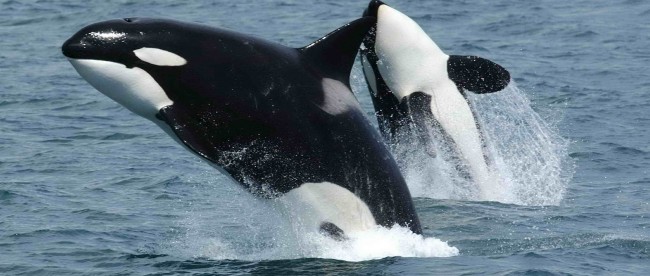The Law of the Tongue

The whalers would go out into the water in hunt for their prey, armed with harpoons and, they hoped, some luck. The whales they were targeting needed to be in the bay, after all; otherwise, there’s little chance of killing one and taking its body back to shore. To help increase the odds, the whalers made a trade with Old Tom, as he was known. Old Tom and some of his friends — Little Jack, Young Ben, Big Ben, and Montague, for example — spent their days at sea anyway. So Old Tom and gang were valuable lookouts. The whalers could stay at home, waiting for Old Tom to give them the signal that whales were in the bay. Upon getting the word, the men would take to their boats, slay themselves a whale, and give Old Tom and company some whale meat for their troubles. It was a pretty simple bargain that benefited everyone.
And for that reason, it wouldn’t be anything special. Whalers kill whales, assisted by sailors with sailor-esque nicknames. No big deal.
But Old Tom, Little Jack, Montague, and the Bens? They weren’t sailors. They, like the prey they helped hunt, were whales.
Starting in around 1840, whalers in Australia’s Twofold Bay near the town of Eden (here’s a map) took to the waters to hunt baleen whales. Before the establishment of the International Whaling Commission in the mid-1900s which restricted the practice, whaling was a big business — it was common for baleen whales to be captured and slaughtered, as the enormous animals provided a lot of useful byproducts. Not only was there a lot of meat in any given whale (yes, people eat whale), but the animals’ blubber was a useful fuel source. Further, their baleen — the teeth-like bristles inside the whales’ mouths — was used instead of plastic before plastic was commonly available. Whaling was a good business, but, as noted in the top paragraph, you often didn’t know if the prey was in the water until you were miles from shore. (Anyone who has ever gone on a whale watching boat knows the risk; the presence of whales varies so much that one Boston tourist boat, for example, offers a free ticket if you don’t see any whales during their 3-hour cruises.)
But thankfully for the whalers of Eden, baleen whales weren’t the only ones in and around the area. Twofold Bay was also home to a number of orcas — killer whales (which are actually dolphins). The main whaling family in the region, the Davidsons, had somehow — likely by accident — enlisted the orcas as allies. The Davidsons were probably tossing unused parts of baleen whales into the water, unintentionally providing Old Tom and friends with a treat. The orcas likely learned that when the Davidsons ate, so did they, so the orcas helped out. As Wikipedia notes, “Old Tom’s role was commonly to alert the human whalers to the presence of a baleen whale in the bay by breaching or tailslapping at the mouth of the Kiah River, which is one of the smallest rivers, where the Davidson family had their tiny cottages.” The Davidsons would reward the orcas with the tongues of the captured baleens, and arrangement which became known as “the law of the tongue.”
Most contemporary accounts of Old Tom and gang’s level of assistance are long gone — there may have been some early films made of the whales’ efforts, likely from the early 1900s, but those have been lost to time. However, many photographs of the whales survived, and were used as a documentary called the “Killers in Eden,” produced in 2005. That documentary (51 minutes and change) is available on YouTube, here.
 Bonus Fact: Whaling, as an industry, has declined significantly since the 1800s, but it hasn’t gone away entirely. Norway, which isn’t part of the International Whaling Commission, is responsible for 500 to 1,000 whales caught each year. Japan, which is part of the IWC, also killed a similar amount each year, claiming that the dead whales are in furtherance of some sort of scientific research, but that (hopefully) ceased in 2014. That year, the International Court of Justice ruled (pdf here) that the scientific research claims were invalid, and barred Japan from further whaling activities.
Bonus Fact: Whaling, as an industry, has declined significantly since the 1800s, but it hasn’t gone away entirely. Norway, which isn’t part of the International Whaling Commission, is responsible for 500 to 1,000 whales caught each year. Japan, which is part of the IWC, also killed a similar amount each year, claiming that the dead whales are in furtherance of some sort of scientific research, but that (hopefully) ceased in 2014. That year, the International Court of Justice ruled (pdf here) that the scientific research claims were invalid, and barred Japan from further whaling activities.
Take the Quiz!: Name the really big whales. Guessing is allowed and, likely, required. Because this is impossible if you don’t really, really know your whales.
From the Archives: Gull-ible: Whales, fishing for birds using fish.
Related: “War of the Whales: A True Story.” Not about whaling but (obviously) about whales. Very well regarded, with an average of 4.5 stars on over 200 reviews.
